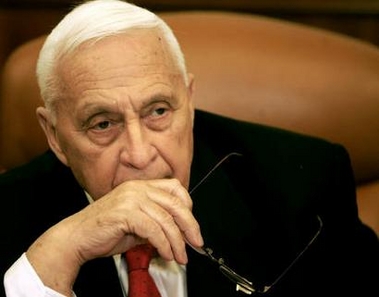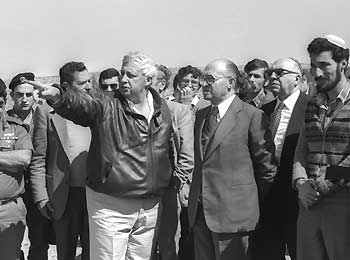|
Sharon suffers life-threatening stroke
(AP)
Updated: 2006-01-05 08:34 Sharon's personal physician said early Thursday that he expects Sharon to
emerge from surgery "safely."
"The prime minister is currently in surgery, it is proceeding properly," said
Dr. Shlomo Segev. "We need to wait patiently. "I expect him to emerge from it
safely."
Channel 2 TV said Sharon was suffering from paralysis in his lower body.
Analysts on Israeli TV stations said his life could be in danger.
The prime minister has been taking blood thinners since the first stroke to
prevent another clot, but such drugs also raise the risk of cerebral
hemorrhages, which account for only about 10 percent of strokes. Other possible
causes of cerebral hemorrhages are ruptured blood vessels, an aneurysm, or bulge
in a vessel wall that bursts, or even chronic high blood pressure.
Doctors who have not examined Sharon but are experts in the field said his
chances of a full recovery are slim.
"It's among the most dangerous of all types of strokes," with half of victims
dying within a month, said Dr. Robert A. Felberg, a neurologist at Ochsner
Clinic in New Orleans.

Israeli Prime Minister Ariel Sharon attends a
ceremony completing the sale of Bank Leumi to a private U.S. investment
group in his office in Jerusalem January 4, 2006.
[Reuters] | "The fact that he's on a respirator
means its extremely serious," said Dr. Philip Steig, chair of neurosurgery at
Weill-Cornell Medical Center in New York. However, he said that depending on the
severity of the stroke, doctors may be able to sustain Sharon on a respirator
for weeks.
Blood thinners may not have caused the latest stroke but could have made the
bleeding worse and may account for its severity, Steig said.
Sharon is about 5-foot-7. Doctors checking him late last month said he
weighed 260 pounds at the time of the first stroke but had since lost more than
six pounds and was otherwise in good health.
Cabinet Secretary Yisrael Maimon said Sharon's authority was transferred to
Olmert because the premier was under general anesthetic.
Security agents and police spread out around the Jerusalem hospital before
Sharon arrived, setting up a security perimeter. Later, they surrounded Olmert's
residence in Jerusalem. Under Israeli law, Olmert is to serve as acting prime
minister until Sharon can resume his powers.
On Dec. 18, Sharon was taken to Hadassah Hospital from his office after
suffering the mild stroke. Doctors said he would not suffer long-term effects,
but they discovered a birth defect in his heart that apparently contributed to
the stroke.

Israeli Prime Minister Menahem Begin (3rd R)
listens to Israeli Agriculture Minister Ariel Sharon (C) during a visit to
the West Bank settlement of Alon Moreh February 27, 1981 in this handout
photo released by the Government Press Office.
[Reuters] | Sharon had been scheduled to check
into Hadassah Hospital on Thursday for a procedure to repair a tiny hole between
the upper chambers of his heart. Doctors said the blood clot that briefly lodged
in Sharon's brain last month, causing the mild stroke, made its way through the
hole and from there to a cranial artery.
Sharon first came to prominence as an army officer, setting up a unit that
fought Palestinian infiltrators in the 1950s. Advancing through the ranks of the
army, he served as commander of the Gaza region after Israel captured the
territory in the 1967 war, launching punishing raids.
After serving in the 1973 Mideast war, Sharon left the military and entered
politics, forging the hardline Likud Party, which came to power in 1977.
As defense minister, he directed Israel's ill-fated invasion of Lebanon in
1982 and was forced to step down by an Israeli commission of inquiry, which
found him indirectly responsible for a massacre of Palestinians in two refugee
camps by Christian Phalangist soldiers.
Sharon re-emerged as prime minister in 2001, and two years later he reversed
his course of decades of support for Jewish settlement construction and
expansion in the West Bank and Gaza, promoting a plan for unilateral withdrawal
from Gaza and part of the West Bank. The pullout was completed in September.
The withdrawal fractured his Likud party, and he left it to form Kadima. He
was putting together a list of candidates for the parliamentary election when he
fell ill Wednesday.
|